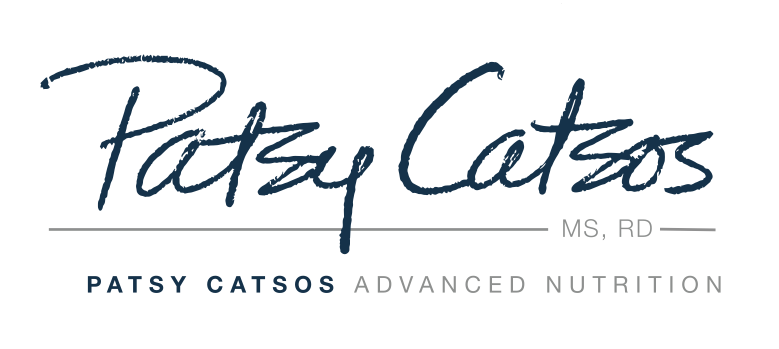“Years of canceling plans, anxious car rides, and feeling like my guts are being ripped open from the inside. Colonoscopies, biopsies, allergy tests, more medical visits than I can count, and always back to the doc shrugging his shoulders and telling me I’m out of luck. Enter Patsy Catsos. Suddenly all the pieces are sliding into place, and I understand why I can eat some meals and not others without getting sick. I finally have an explanation that makes sense. I’ve been just 5 days on the low FODMAP elimination diet and the difference has been instantaneous.”
Good Candidate Checklist
The best candidates for the FODMAP elimination and challenge process can answer yes to the following questions:
Do you have digestive symptoms such as excess gas, bloating, abdominal pain, diarrhea and/or constipation?
Have you been properly evaluated by a health care professional and diagnosed with IBS or another condition that might benefit from a low FODMAP diet?
Has your doctor or dietitian recommended a FODMAP-elimination diet?
Has celiac disease been ruled out?
Have you been unable to manage your symptoms with good health habits like regular meals, managing stress, and getting adequate amounts of fiber, fluids and exercise?
Are you physically, mentally and emotionally able to limit your diet for a period of time without endangering your physical or mental health?
Are you willing and able to take on a dietary experiment?
“This book has been brilliant for us. My daughter’s dietitian introduced us to the FODMAP idea, but she was new to it herself so the information we got was sparse. My daughter improved but she was living on rice, chicken, carrots and dry cornflakes! We’re following the elimination phase of the diet and she’s eaten more fruit, vegetables and nuts than I think she’s ever eaten, which bodes well for her future health.”
Some people may not be good candidates for an elimination diet, including people with inflexible eating habits; those who are medically fragile; those who are at risk for eating disorders; and those who do not have full control over their food purchasing and preparation. In addition, diet changes should be delivered with great sensitivity and tact to children. Such individuals are strongly advised to work with a dietitian, who may be able to recommend medically-appropriate changes informed by the FODMAP approach, without requiring a full-fledged elimination diet.
Potential Risks
It is important to note that a FODMAP elimination diet has some potential risks.
Nutrient intake can be affected if care is not taken to choose a wide variety of low-FODMAP foods. Fortunately there are good low-FODMAP sources of every nutrient if you are willing to eat them! It is more difficult to get enough nutrients on a low FODMAP diet for vegans or people who don’t eat gluten or dairy.
Prebiotic intake is reduced on a low-FODMAP diet. Prebiotics are food for the good bacteria in a healthy gut microbiome. GOS and fructans are prebiotics, and we eat less of them on a low FODMAP diet. So far it does not appear that this reduced prebiotic intake has any persistent effects or long-term risks. Still, out of an abundance of caution, people with healthy guts would be well-advised to eat plenty of valuable high-FODMAP foods such as beans, nuts, seeds, fruits, vegetables and whole grains. Those of us with IBS may not be able to eat liberal quantities of these, but we can work on our prebiotic intake by a) keeping the low FODMAP phase of the elimination diet process short and b) including prebiotic foods in low-FODMAP serving sizes, or more as we find we can tolerate them later on in the process. It’s better to have small portions of these foods than none at all.
Restricted diets, including low-FODMAP, can contribute to disordered eating behaviors. There are a significant number of people with IBS who meet criteria for eating disorders and vice versa, so this is not a small concern. If you have a history of an eating disorder or realize you are avoiding food or eating because of weight concerns or fear, please have an open conversation with your health care provider before following advice to try this type of diet. There are other ways a dietitian with GI or eating disorder expertise can help you work with FODMAPs that may be more appropriate for you.

